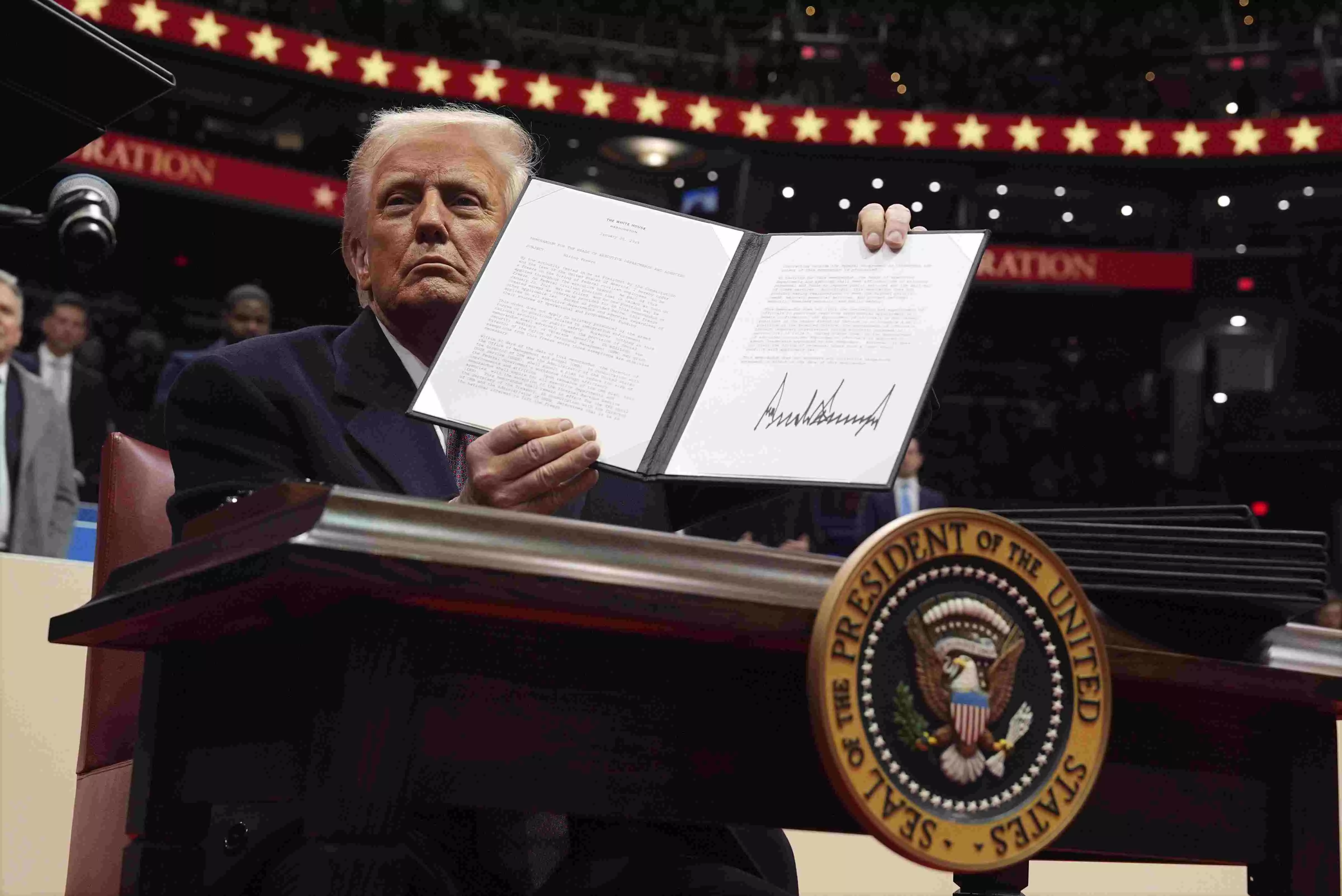Characterised by chaos

Donald Trump has returned on the global political scene as the US President, and as anticipated, with a simmering chaos that characterised his first term as well. For good or bad, Trump continues to act in defiance of the evolved world order and global thinking. On his very first day back in office, he signed a flurry of executive orders that signal a dramatic shift from the policies of his predecessor, Joe Biden. Trump’s abhorrent decisions—ranging from ending birthright citizenship to recognising only two genders at the federal level—are disruptive enough to boggle the calmest of minds. Contrary to Trump’s claims that these moves are about restoring America’s “common sense,” they have left many questioning the direction in which the country is heading.
The decision to end birthright citizenship, in particular, has left many scratching their heads in bewilderment. Thousands of families, including many Indian professionals on temporary visas, are now set to face the uncertainty about their children’s futures. The order is being challenged in court by 22 states, whose leaders argue that it undermines the spirit of the US Constitution. In a similar vein, Trump’s stand on gender identity, which blatantly disregards the rights of LGBTQ+ individuals, has drawn sharp criticism from civil rights groups and general people alike. For saner minds, such actions would seem outright incomprehensible. It is not just Trump’s far-right and conservative agenda that is at play; his actions seem to be fuelled by a sense of retribution—a revenge for Democrats’ impeachment bids and his loss in the previous election that he dubbed as compromised. Retributive approach of any ruling political party in any democracy is bound to lead to retardation in critical spheres. For an already polarised nation like the US, repercussions could be much more grave.
Away from domestic chaos, on the global front, Trump’s return has brought back his trademark economic aggression. He has already announced tariffs on goods from Canada and Mexico—a move that Canadian Prime Minister Justin Trudeau has vowed to counter. Trump has also threatened punitive measures—including absolute sanctions—against the BRICS nations. He has accused these nations, including India, of undermining the US dollar. Dollar hegemony has indeed been under threat in last few years, but that is because of organic shifts in global economics, and not some punishment-worthy policies of BRICS nations. Trump’s actions have alarmed world leaders, who warn that trade wars and protectionist policies could destabilise the global economy. At the World Economic Forum in Davos, European and Chinese leaders pushed back at Trump’s agenda. They have instead emphasised upon the need for cooperation and warned of the risks of isolationism.
Domestically, Trump’s environmental policies have also stirred a major controversy. His reckless and unmindful decision to roll back climate protections and expand oil drilling, at a time when climate change demands urgent global action, hardly makes any sense. The US cannot sacrifice global safety on the altar of its pursuit of energy independence. Furthermore, contrary to his call for unity during his inaugural address, Trump’s actions tell a different story. His speech, though laced with promises of a “golden age,” was a continuation of his grievance-driven rhetoric—blaming political opponents and reversing their policies rather than presenting a unifying vision. Even as he spoke of being a “peacemaker,” he doubled down on divisive issues, leaving the nation in a polarised state.
Trump’s second term begins at a time when the world is grappling with myriad challenges that require collaboration and diplomacy. His return seems to have reignited old tensions both at home and abroad. Whether he will manage to fulfil his promise of ‘greatness’ or further entrench the divisions that define his leadership remains uncertain. For now, America—and the world—can only brace for what lies ahead.



